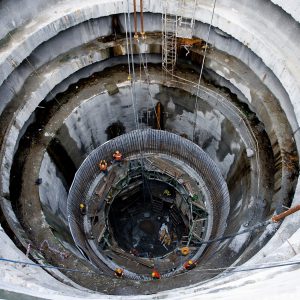

On October 7th, Coreo and the Circular Economy Leadership Coalition in collaboration with the Canadian Government hosted Mining for Circularity, a World Circular Economy Forum 2020 Online Side Event session.
Through this session we facilitated dialogue among a range of companies, downstream metals buyers and civil society leaders, challenged conventional thinking and provoked deep reflection on how the mining sector and its value chain can accelerate the transition toward circularity.
Mining for Circularity opened with a compelling keynote from Mark Cutifani, the CEO of Anglo American, on the imperative of the circular economy.
“There is a strong rationale for us to engage with the circular economy that is strategic both from a planetary boundaries perspective and in order to support and accelerate our company’s ambitions. Furthermore, our customers are demanding it… If I look back over the years, we have characterized ourselves as a mining company, today we characterize ourselves as a metals and mining company, and tomorrow we could very well be categorizing ourselves as a materials solution company.” Mark Cutifani.
Ashleigh Morris the CEO of Coreo then facilitated a panel with senior representatives from the World Bank, Rio Tinto and ArcelorMittal which highlighted that the challenges surrounding transitioning toward a circular economy are much smaller than the opportunities it presents.
We then heard detailed case studies on how the circular economy is being taken out of theory and put into practice by Natural Resources Canada, Agnico Eagle, and Anglo American. Key highlights included the development of green hydrogen to fuel mining operations and capturing the full value from ore bodies with a focus on designing out waste and pollution.
Lastly, Alan Young, a senior advisor to the Circular Economy Leadership Coalition, facilitated a panel with representatives from Earthworks and BMW on closed and open loop circular economy models. In this panel the urgency of the transition towards a zero waste/low carbon circular economy was made apparent and emphasised that there is no one right way to make this transition.
The main themes that emerged through the session included:
To augment the key insights and perspectives shared by our guest speakers throughout the session we ran polls asking key questions of our audience.

Session Registrants: The webinar sold out quickly, with 450 registrants signing up from 30 countries around the globe. There was widely diverse representation of interest from different sectors – governments, mining companies, downstream buyers and service providers, civil society and academics.
Join our mailing list